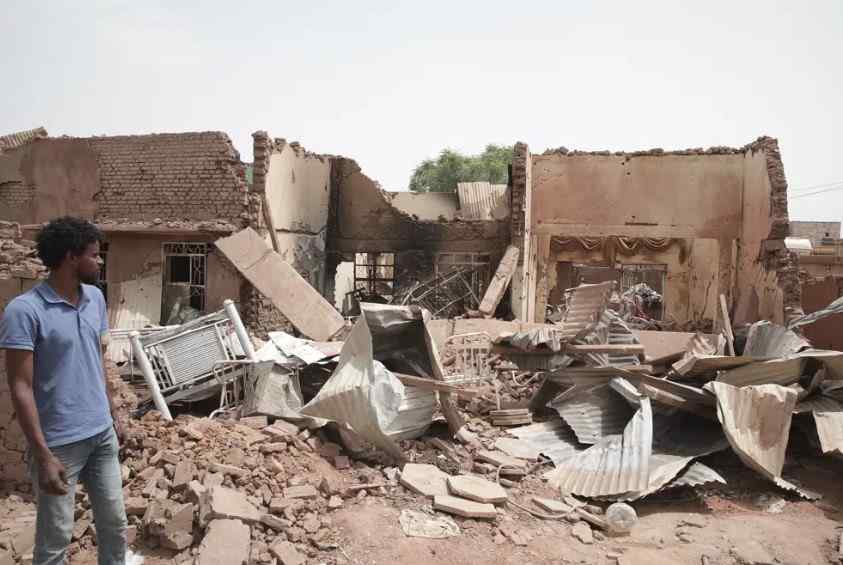Despite fresh ceasefire talks scheduled to begin yesterday, heavy fighting continues unabated across Sudan. Negotiations between the country’s army and the Rapid Support Force (RSF) were set to resume yesterday in Jeddah. However, clashes between the warring factions persist, with civilian areas in the capital city of Khartoum, neighboring Omdurman, and Geneina in the Darfur region being targeted.
The conflict between the former allies from Sudan’s military and the RSF erupted nearly a month ago. Hani Ahmed, a resident of Khartoum, lamented the situation, stating, “The sounds of tanks and increased RSF presence on the streets are all too evident.”
He further explained, “While we occasionally witness military aircraft in the sky, our direct encounters are primarily with the RSF. They are the ones on the ground.” Reports estimate that over 700 people have lost their lives, with nearly 200,000 individuals displaced, seeking refuge in neighboring states. Inside the country, approximately 700,000 people have been internally displaced, exacerbating food and medicine shortages.
Medecins Sans Frontieres (Doctors Without Borders) has expressed concerns that conditions, particularly for children, are likely to deteriorate further. The warring factions signed a “declaration of commitment” on Thursday after a week of talks mediated by Saudi Arabia and the United States. Despite the agreement, Sudan’s capital remains a desolate war zone, with terrified families confined to their homes while gun battles rage on the deserted, dusty streets outside.
Khartoum, a city of five million people situated along the Nile River, was once a haven of relative stability and prosperity, even amidst decades of sanctions imposed during the rule of former strongman Omar al-Bashir. However, it now stands as a mere shadow of its former self. Charred aircraft litter the airport tarmac, foreign embassies remain closed, and hospitals, banks, shops, and wheat silos have been ransacked by looters.
While the military factions engage in battle, what remains of the government has relocated 850 kilometers (528 miles) away to Port Sudan, serving as the focal point for mass evacuations of Sudanese and foreign citizens alike. The ongoing conflict has claimed over 750 lives, according to the Armed Conflict Location and Event Data Project, while thousands more have been wounded and almost a million people have been displaced, leading to lengthy refugee convoys bound for Egypt, Ethiopia, Chad, and South Sudan.
Food prices have skyrocketed, with some items experiencing quadruple price increases, and petrol now being sold at 20 times its pre-war value. Numerous ceasefire agreements have been reached, only to be swiftly violated, leaving little hope for an end to the fighting that has intensified the suffering endured by Sudan’s 45 million inhabitants, who already face dire circumstances as citizens of one of the world’s poorest nations.
Alex Rondos, the former European Union special representative to the Horn of Africa, remarked, “Both sides break ceasefires with a regularity that demonstrates a sense of impunity unprecedented even by Sudan’s standards of civil conflict.”
Sudan has a long history of coups, but there was a glimmer of hope following mass pro-democracy protests that led to the ousting of the Islamist-backed regime of Omar al-Bashir in 2019, eventually leading to a fragile transition towards civilian rule. However, tensions over the integration of paramilitary forces into the army sparked the conflict on April 15, pitting army chief Abdel Fattah al-Burhan against his former deputy Mohamed Hamdan Daglo, who commands the RSF.
Image Credit: Marwan Ali/AP




